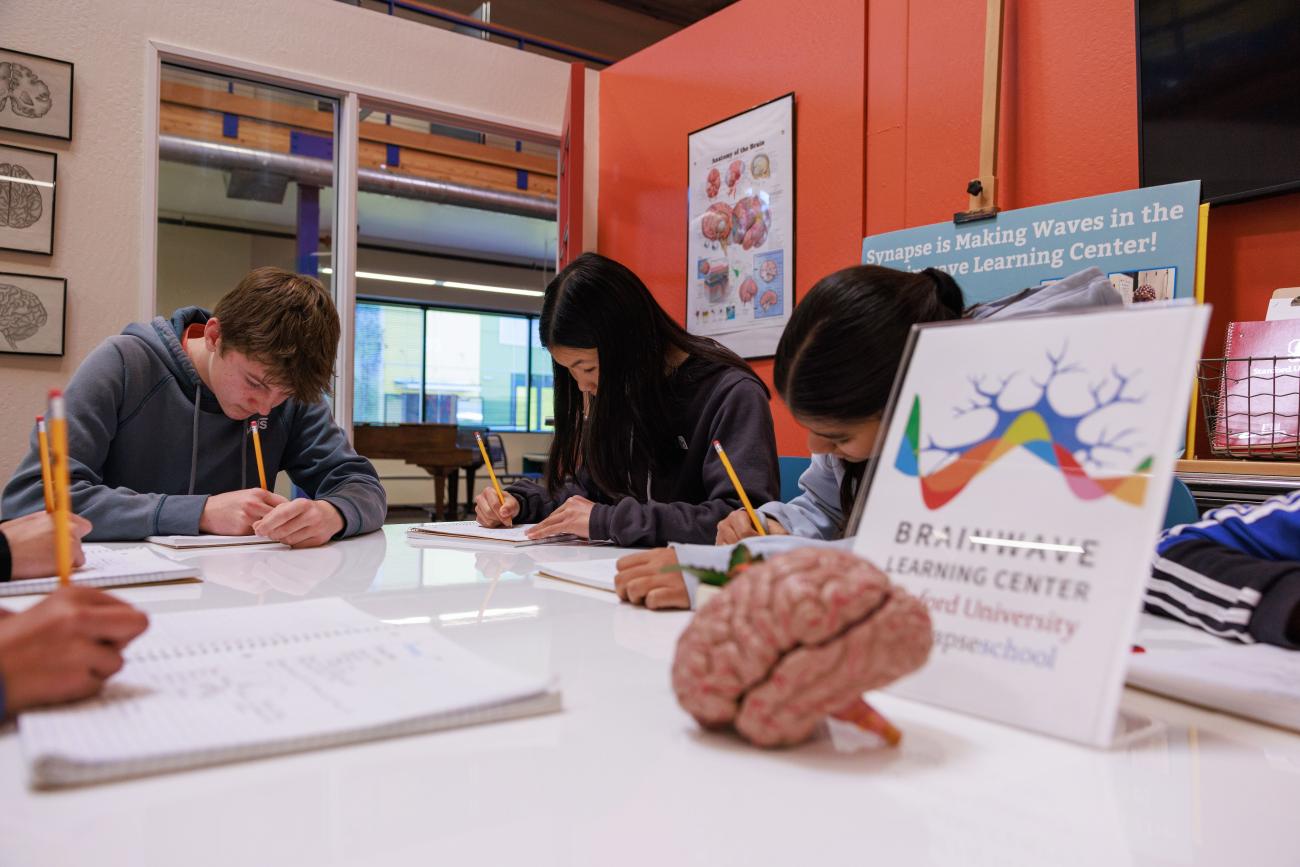
Stanford-led center honored for innovation in educational neuroscience
The Brainwave Learning Center (BLC), a collaboration between Stanford University and Synapse School in Menlo Park, Calif., has been recognized with a 2022 award from the International Mind, Brain, and Education Society (IMBES).
The center, which is embedded at Synapse and part of the Educational Neuroscience Initiative at Stanford Graduate School of Education (GSE), brings together researchers, teachers, and students to explore the impact of educational experiences on brain development. Through the partnership, Stanford researchers engage elementary and middle school students with neuroscience in the classroom while advancing research in the field.
Selected among educators, institutions, and programs worldwide, the center was honored for best exemplifying IMBES’ central mission: to facilitate cross-cultural collaboration in biology, education, and the cognitive and developmental sciences. The award recognized the center for building infrastructure that enhances collaboration to improve educational research and practice.
“The BLC model offers a powerful example for MBE [mind, brain, and education] work in authentic learning environments, exemplifying how bidirectional collaboration between researchers and practitioners can support research, teaching, and learning,” said Stephan Vogel, an associate professor at the University of Graz, who presented the award at a ceremony at the society’s biennial meeting in Montreal in July.
“We’ve been very intentional about building connections between our researchers, teachers, students, and families, and this has allowed us to explore scientific questions in ways that just weren’t possible before,” said Elizabeth Toomarian, a Stanford researcher and director of the BLC. "It’s a tremendous honor to be recognized by IMBES for this translational work."
The BLC, established in 2019, explores how changes in the brain's neurocircuitry support emerging skills that are foundational to education such as reading, math, and attention. Students in kindergarten through eighth grade engage with neuroscience through lessons and activities developed by researchers and Synapse teachers, while researchers learn about brain development. At the same time, Synapse students get to see scientists in action, formulating research questions and using state-of-the-art equipment to try to answer them.
The center “provides an important example of how to address the longstanding MBE challenge of actually working at the intersection of mind, brain, and education,” said Courtney Pollack,a cognitive neuroscientist who nominated the center for the award. “The BLC is truly exceptional in both harnessing and moving beyond the traditional institutional partnership model, trailblazing an innovative new infrastructure for MBE work.”
Faculty mentioned in this article: Bruce McCandliss



